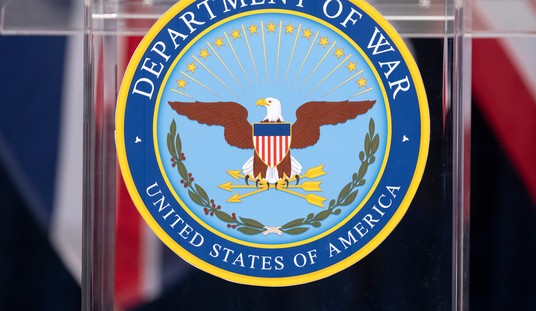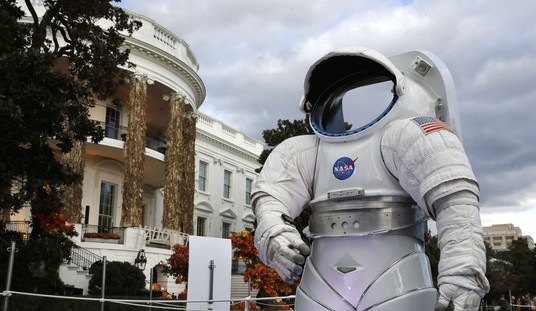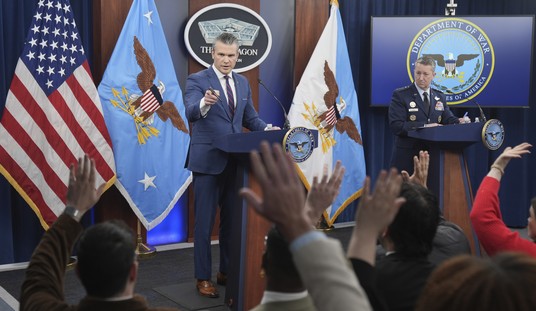Ever since Vladimir Putin intervened in Syria to save his client, Bashar Assad, and thereby save Russian face, the Obama administration has been at a loss for how to react. They don’t have the guts to confront Putin in any meaningful way — his entire regime is an ongoing criminal conspiracy an could justifiably be shut off from Western travel and access to Western banks — and so they have resorted to the foreign policy equivalent of trolling Putin’s blog comments (see here | here | here).
Over the weekend, more of the same emanated from the State Department.
Antony Blinken, the U.S. deputy secretary of state who spoke Saturday at the International Institute for Strategic Studies Manama Dialogue in Bahrain, said the U.S. government believes it’s only a matter of time before Moscow realizes that its military intervention and its ardent support for Assad’s continued rule are mistakes, after which the Russian government could support a political process that includes replacing Assad.
“Russia’s intervention in Syria is a prime example of the law of unintended consequences. It will have two primary effects,” Blinken said. “First, it will increase Russia’s leverage over Assad. But second, it will increase the conflict’s leverage over Russia. And that will create a compelling incentive to Russia to work for, not against, a political solution.”
Russia will not be able to afford to sustain its military intervention in Syria for long, Blinken said, and sooner rather than later the economic, political and security costs will force Russia to re-evaluate its Syria policy. He said Russia will be dragged into a quagmire, and he expressed confidence that Russia would come around to the realization that in order to solve Syria, it will have to agree to Assad’s departure.
“Russia has a choice now on how to move forward, and we would welcome it making the right choice for our shared interests,” Blinken said.
If you’ve been following the war in Syria, and that would mean you are not a State Department employee, there are a few facts that are obvious.
The “vetted” Western rebels are both ineffectual and they seem to be ideological soulmates of al Qaeda and ISIS.
Turkey is very ambivalent about fighting ISIS. They are terrified of the Kurds becoming better armed. Given their preference, they would happily watch ISIS overthrow Assad.
Iran is furnishing ground troops.
Lebanese Hezbollah is furnishing ground troops.
The Saudis and Jordanians are looking to Russia for support and guidance.
Russian President Vladimir Putin is popular and the Russian Duma is a rubberstamp.
Barack Obama is not terribly bright or popular.
It seems as though Blinken’s foreign colleagues were somewhat aghast at the self-deception contained in his statement.
The British foreign secretary, Philip Hammond, told me he had good reason to be skeptical of that optimism.
“There’s a school of thought that says that as the Russians get drawn into this conflict, they will more and more looking for a way to get a political solution,” he said — but “it’s not my government’s assessment.”
…
François Heisbourg, the chairman of the International Institute for Strategic Studies and a former top official in the French foreign ministry, disputed Blinken’s contention that Russia would feel pressured by the costs of its intervention in Syria:
“I would be very surprised if Russia could not sustain such an effort despite its other difficulties until at least the end of the American electoral cycle in November of next year” — in other words, wait out the Obama administration and deal with the next president.
What is worse is that our allies are making no pretense of not knowing Obama is a poseur:
Privately, European diplomats at the conference told me they were concerned the new U.S.-led diplomatic effort was an empty gesture, to allow the Obama administration to claim it was working in earnest to solve the Syria crisis. America’s allies are reluctant to invest in a process in which they do not think the U.S. has much confidence and that has little chance of success.
U.S. officials told me that the Vienna talks with Russia, Iran, Saudi Arabia, Turkey and others are an honest attempt to convince Russia to change its position on Syria and that there is some hope Russia will endorse a solution to the Syrian civil war that does not include Assad remaining in power. But nobody else in the room shares that hope.
Russian involvement in Syria is very minimal. They have about 40 high performance aircraft, ground crews, and base security personnel. Their use of Iranians and Lebanese, people who were going to be active in Syria anyway, is calculated to minimize the vulnerability of the Russian forces in Syria while maximizing their propaganda impact. Absent some kind of an extraordinary event, such as a Russian fighter being shot down and the pilot roasted alive, there is virtually no chance that Russia is going to become “bogged down” in Syria.
Putin, in a way that Obama can never fathom, understands the value of constancy with his allies. If you are an Obama ally you can be overthrown with the assistance of the US government because Obama has a case of indigestion. Putin is placing Russia’s national prestige on the line to save a client and that will not go unnoticed it the Third World where the distance between the President’s Office and a noose are measured in nanoseconds. Putin also has an overarching geostrategic scheme and a Syrian client state figures prominently in that plan. The sooner the Obama administration stops whistling past the graveyard and gives Putin the credit he deserves, the sooner they can think about how to curb his impulses and prevent a regional war.













Join the conversation as a VIP Member